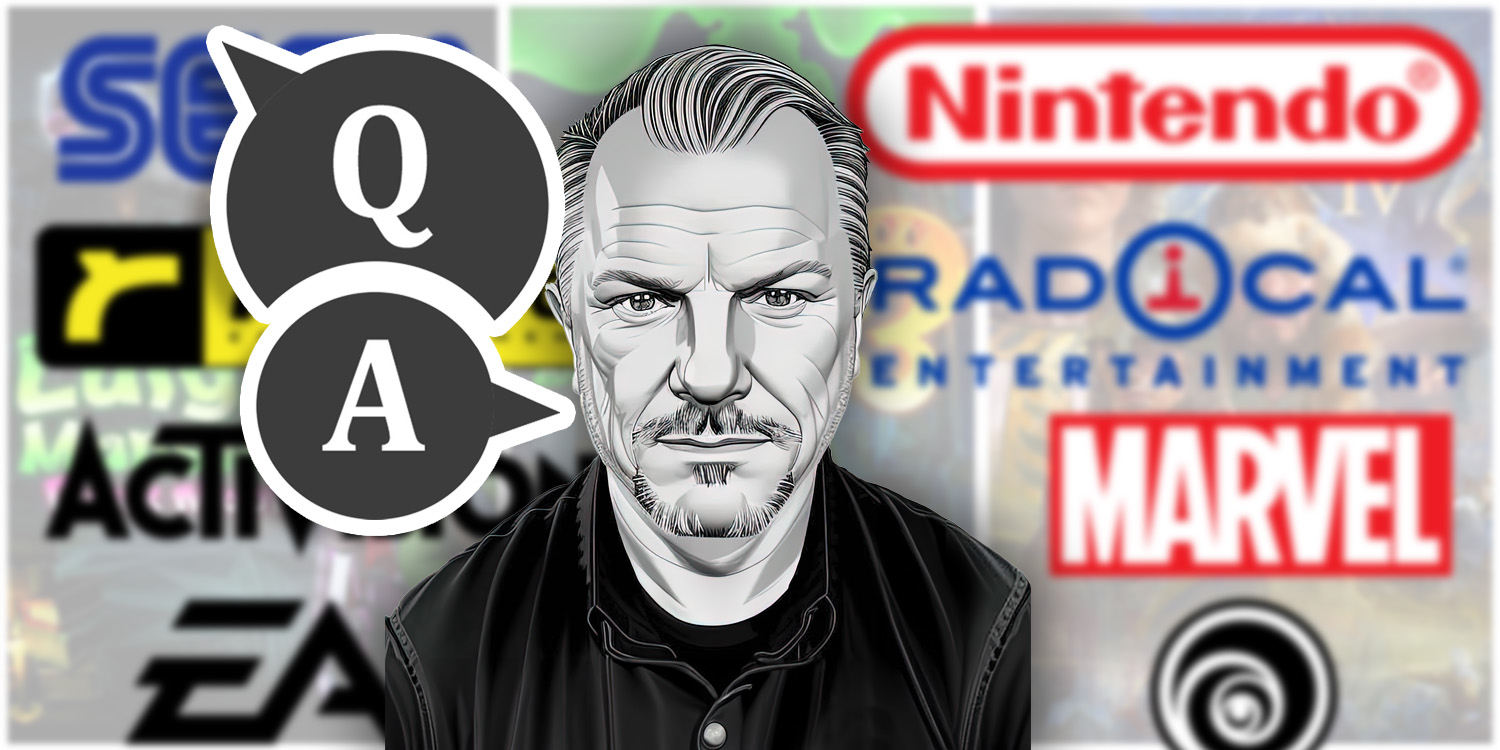Q&A with Paul Goad of Funatic Games
Let’s start simple: What is Nova Terra in one sentence?
Paul: Nova Terra is a browser-based RTS where players battle for map domination through streamlined resource management and strategic control, think big strategy, accessible to anyone with a web browser.
What inspired you to create Nova Terra?
Paul: I’ve spent my career building big, complex games, from Age of Empires IV to FIFA Soccer and Need for Speed. But I wanted to distill strategy down to its purest form. Nova Terra is born out of that idea: a strategy game that’s easy to pick up, fun in short bursts, but still deep enough to reward mastery.
Why focus on the browser as the starting platform?
Paul: Accessibility. I want strategy fans to be able to jump in without downloads, patches, or hardware barriers. If you have a web browser, you can play. It also lets us test and refine quickly with a global audience before expanding to Steam.
How does Nova Terra stand out in the crowded RTS space?
Paul: Most RTS games today fall into two camps: massive, hardcore simulations, or flashy but shallow mobile titles. Nova Terra carves its own lane. It’s minimalist, performance-focused, and designed for both quick skirmishes and long, strategic campaigns. It’s competitive without being overwhelming.
What’s the core gameplay loop like?
Paul: You select a cell, manage resources, and deploy units or weapons to control territory. Over time, the map itself becomes the battleground, shrinking, shifting, and forcing players into conflict. It’s about efficiency, foresight, and bold moves.
What kind of player do you imagine sinking the most hours into Nova Terra?
Paul: Casual strategy fans who love the thrill of competition but don’t always have an hour to spare. Nova Terra works if you’ve got twenty minutes on your lunch break or if you want a full evening of tactical domination.
Let’s talk visuals, why go minimalist?
Paul: Because performance matters. I didn’t want flashy effects to get in the way of clarity. The clean design keeps players focused on strategy while ensuring the game runs smoothly, even on modest machines.
Does Nova Terra take any cues from your work on Age of Empires IV?
Paul: Absolutely. Working on Age of Empires IV reinforced for me how much players love clear, purposeful mechanics. Nova Terra takes that lesson and strips away complexity, leaving only the most satisfying parts of resource and territory management.
Will Nova Terra support both small and large-scale play?
Paul: Yes, and that’s the beauty of it. You can have a quick, contained battle or scale up to sprawling maps where strategy unfolds over time. It’s flexible by design.
Is this a single-player or multiplayer experience?
Paul: The vision is primarily multiplayer, strategy is best when it’s unpredictable. Our initial playtesting is starting with a single player battle to gather feedback.
What has been the biggest design challenge so far?
Paul: Balance. When you’re designing for accessibility, it’s easy to oversimplify. The challenge is creating mechanics that are intuitive for newcomers but layered enough that veterans can dig in and find depth.
Let’s shift to Funatic Games, why did you decide to found your own studio?
Paul: After 30 years in AAA development, I wanted to build something personal. Funatic Games is about experimentation, independence, and creating projects that I truly believe in. Nova Terra is the kind of game I’ve always wanted to make.
What’s been the biggest difference between AAA and indie for you personally?
Paul: In AAA, you’ve got teams of people, huge budgets, bloated management and massive overhead. In indie, you have freedom, and with freedom comes risk. Every decision counts. It’s terrifying and exhilarating at the same time.

How are you planning to grow the game beyond the browser?
Paul: The roadmap is to refine Nova Terra in the browser, build a passionate community, and then expand to a full PC release on Steam. That way, we’re scaling with player demand while keeping the foundation strong.
What kind of community do you hope to build around Nova Terra?
Paul: I want Nova Terra to attract strategy fans who enjoy competition but also creativity, a community that helps shape the game, shares tactics, and celebrates those thrilling moments where one clever move changes everything.
Looking back at your career, what lessons are you applying to Nova Terra?
Paul: From Age of Empires IV: the importance of clarity and balance. My time developing for Nintendo taught me how important the core mechanic is to the product. Nova Terra is a melting pot of those lessons, reshaped for a new audience.
What excites you most about Nova Terra right now?
Paul: Seeing the systems come alive — watching resources shift, maps evolve, and strategies unfold. It’s still in development, but the foundation is already fun, and that’s the most exciting part.
2025 has been tough for the games industry, with layoffs, restructures, and a lot of uncertainty. What’s your perspective on the state of the industry right now?
Paul: It’s been a turbulent year, no question. AAA studios are under immense pressure, and we’ve seen thousands of incredibly talented people impacted by layoffs. It’s heartbreaking, but it’s also created a shift: more veterans are moving into indie spaces, founding their own studios, and chasing passion projects. In a way, it’s a bittersweet silver lining, we’re about to see an explosion of creativity from people who have the experience but now also have the freedom.
Do you think those industry shifts affect how players see indie games?
Paul: Absolutely. Players are more open than ever to indie projects. They recognize that innovation often comes from smaller teams, not massive corporations. Games like Nova Terra can thrive because the audience is hungry for fresh ideas, and they respect the human stories behind them.
AI has been a huge talking point across the industry. What role do you see it playing in indie game development?
Paul: AI is a tool, nothing more, nothing less. For indies, it’s a lifeline. It can help generate prototypes faster, streamline coding, and even assist with art or optimization. But it doesn’t replace vision, creativity, or craftsmanship. For Nova Terra, AI helps us build more efficiently, but the strategy, the feel, the fun, that still comes from human design.
Some worry that AI will strip the “soul” out of game development. Do you share those concerns?
Paul: I think if AI is used to cut corners, yes, games can lose their soul. But if it’s used responsibly, to support creators, not replace them, it’s liberating. It lets small teams dream bigger. For me, the key is transparency: be honest about how AI is used, and make sure the heart of the game comes from people who care deeply about the player experience.
As someone with 30 years in the industry, what’s it like getting older in a space that often celebrates youth and the “next big thing”?
Paul: It’s humbling. Gaming is always evolving, and youth definitely drives trends. But experience matters too. I’ve seen cycles come and go, genres rise, fall, and rise again. Being older gives me perspective: I know what’s timeless. RTS games, for example, have been around for decades because strategy never goes out of style. My role now is to bridge the gap, bring veteran knowledge to fresh ideas, and stay curious enough to keep learning.
What advice would you give younger developers entering the industry in 2025?
Paul: Don’t wait for permission. The old path, get hired at a big studio, work your way up, is less secure than ever. With the tools we have today, you can start creating immediately. Build small, fail fast, learn constantly. And don’t be afraid of collaboration, find people who share your passion, and you can make something amazing together.
Finally, how can players get involved?
Paul: Sign up for updates at Funatic Games. Join early, follow the development, and help shape the future of NovaTerra. This isn’t just my game — it’s ours to build together.
Thank You For Coming To www.funatic.games
Please Follow Us On Social Media
Contact Us, We'd Love To Hear From You
Click HERE To Learn More About Funatic Games
Click HERE To Learn More About Nova Terra
Click HERE To Learn More About FlicKick Table Soccer









